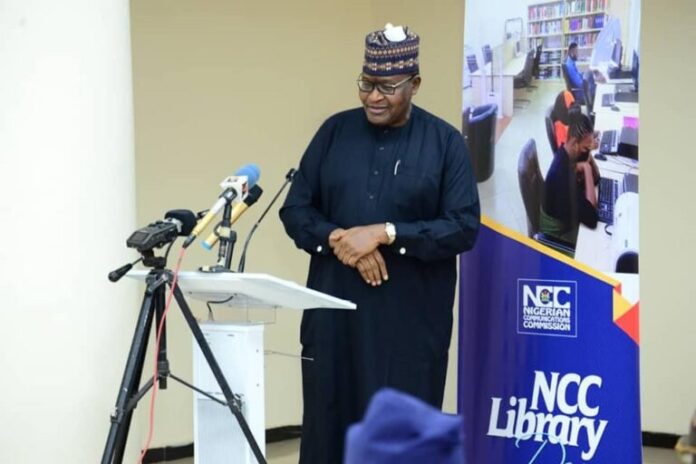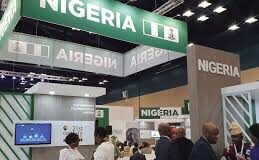e-Government Summit 2021: Danbatta Outlines NCC’s 8 Major Achievements
TECHDIGEST – Prof. Umar Garba Danbatta, the executive vice chairman and chief executive officer (EVC/CEO) of the Nigerian Communications Commission (NCC), said the e-Governance is an importantl component of the Digital Economy.
Danbatta disclosed this at the e-Government Summit 2021 that was held at Sheraton Hotel in Lagos on Wednesday with the theme: e-Government Adoption in Nigeria: Opportunity and Challenges.
He explained that the NCC has been working assiduously with all Stakeholders to deepen penetration of broadband infrastructure and services which support the growth of e-Governance and other critical Digital Economy objectives throughout Nigeria.
According to him, “In this regard, we recently unveiled our Strategic Vision Plan (SVP 2021-2025) which enables us to more effectively align our efforts with the National Digital Economy Policy and Strategy (NDEPS) and global best practices.
“Leveraging on the successes we achieved under our previous SVP, we are repositioning both the Commission and the entire industry to facilitate the availability of solid infrastructure and to proliferate digital platforms which effectively and efficiently enable digital inclusion throughout Nigeria.”
The NCC chairman, however, highlighted some of the pivotal initiatives achieved by the commission below:
1. We recently secured Presidential approval for the National Policy on Fifth Generation Networks (5G) in Nigeria through the Ministry of Communications and Digital Economy. This provides us with a framework for the safe and efficient deployment of the latest access technologies in Nigeria.
2. Following the Presidential approval of the 5G Policy, we have developed a 5G deployment plan for Nigeria’s Digital economy, and we have set up a committee to auction the 3.5 GHz band for 5G deployment in Nigeria – details of the auction will be announced in due course.
3. The World Radio-Communications Conference (WRC-19) recently harmonized 5G spectrum bands – such as the 26GHz, 38GHz and 42GHz bands. The Commission is currently updating the National Frequency Allocation Table (NFAT) for more efficient spectrum allocation and usage to reflect WRC-19 reccomedations. We are also opening up some new spectrum bands for utilization, such as the 60GHz V-band and the 70/80GHz E-band for both point-to-point and point-to-multi-points deployments.
4. We are working in collaboration with the National Frequency Management Council (NFMC) and the National Broadcasting Commission (NBC) to ensure that the 700MHz and 2.6GHz bands are completely cleared of any encumbrances so that they can be assigned to Operators for their broadband deployments.
5. We recently granted approval to the Proof-of-Concept (PoC) and Non-Commercial 5G trial in the 3.5 and 26GHz bands to MTN Communications PLC. We are also in the process of another trial with Airtel.
6. We have since issued the Spectrum Trading Guidelines to enable Operators transfer, lease or share spectrum resources. Two Spectrum bands have been successfully traded, i.e. the transfer of 2 x 10MHz in the 900MHz Extended GSM Band from Intercellular to Airtel, and 2 x 10MHz in the 800MHz band from Intercellular to MTN.
7. We recently concluded the development of Guidelines on TV White Space (TVWS) for the deployment of broadband services in the country.
8. We have created a Satellite Unit within the Technical Standards and Network Integrity Department for the regularization of the activities of Satellite Operators in Nigeria (including Space Station Operators and Earth Station Operators).
He added: “These and our other activities are geared towards ensuring accessibility to efficient and affordable network infrastructure to power e-Government and other Digital Economy initiatives throughout Nigeria.
“They also underscore our commitment to ensure the achievement of the Federal Government’s socio-economic development initiatives whilst providing a conducive atmosphere for attracting requisite investments into the sector.
“However, it should be noted that the task of attracting infrastructure investments is a collective responsibility. We should all therefore commit to removing barriers to investment – such as multiple taxation and regulation, arbitrary pricing of bottleneck resources like Right-of-Way, time-consuming and unfriendly approval processes, etc.
“These factors discourage investments in digital infrastructure and reduce the speed at which we provide our people with access to seamless digital service infrastructure for e-Governance and other services.”
















